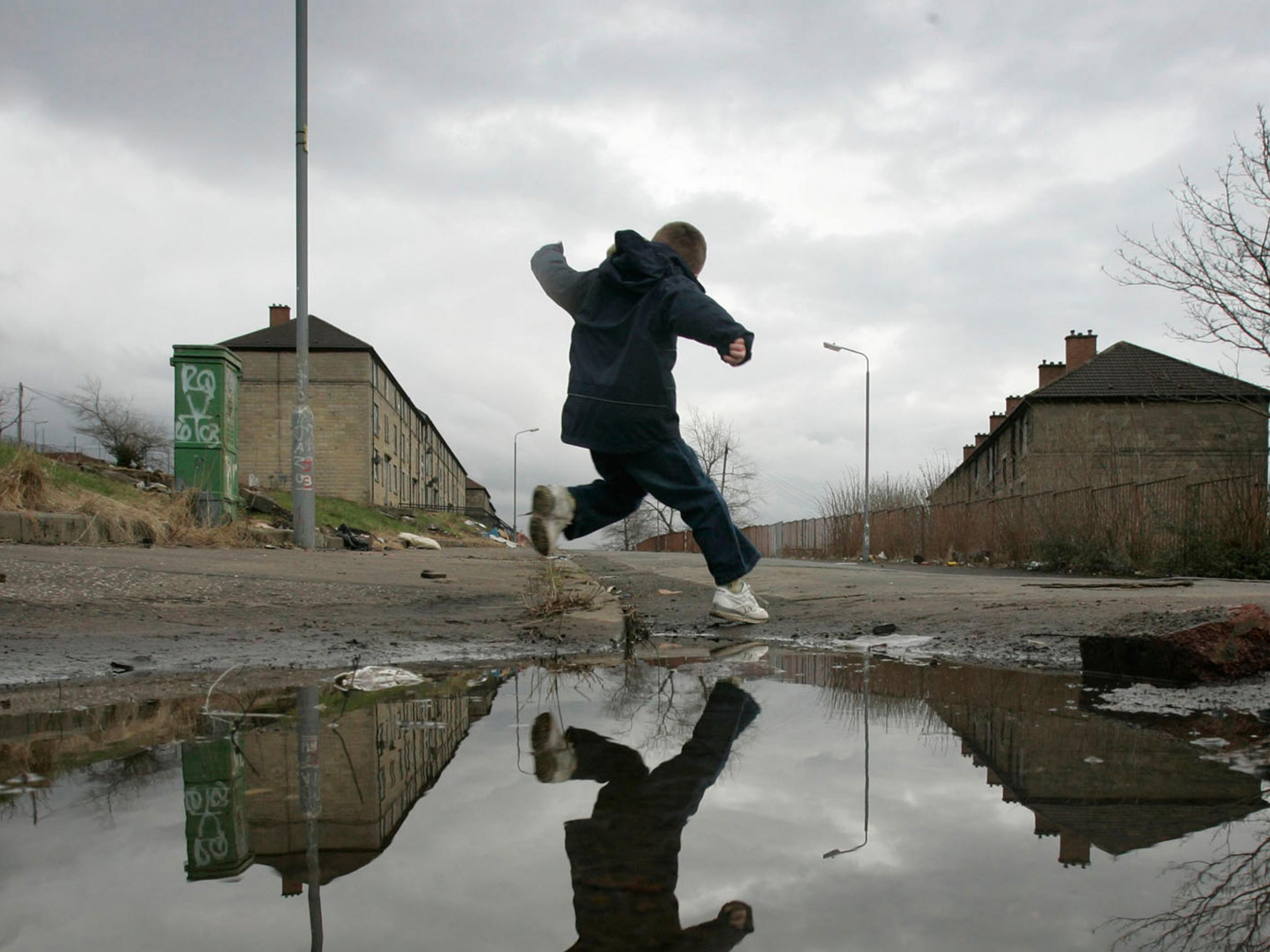Fear of failure and poverty may be contributing to UK teenagers having lowest life satisfaction in Europe, report finds
More than two in five children feel their life lacks purpose

Your support helps us to tell the story
From reproductive rights to climate change to Big Tech, The Independent is on the ground when the story is developing. Whether it's investigating the financials of Elon Musk's pro-Trump PAC or producing our latest documentary, 'The A Word', which shines a light on the American women fighting for reproductive rights, we know how important it is to parse out the facts from the messaging.
At such a critical moment in US history, we need reporters on the ground. Your donation allows us to keep sending journalists to speak to both sides of the story.
The Independent is trusted by Americans across the entire political spectrum. And unlike many other quality news outlets, we choose not to lock Americans out of our reporting and analysis with paywalls. We believe quality journalism should be available to everyone, paid for by those who can afford it.
Your support makes all the difference.The British “fear of failure” and rising child poverty could be behind UK teenagers feeling the least satisfied with their lives across Europe, according to a charity report.
British 15-year-olds reported the lowest levels of life satisfaction and the greatest fear of failure across 24 European countries, the Children’s Society said.
The charity’s annual Good Childhood Report examined international data from a survey by the Programme for International Assessment (PISA), conducted in 2018.
The UK also ranked last for children’s overall sense of purpose, with just over two in five (43 per cent) saying they felt their life lacked clear meaning or purpose. And it had the second highest levels of sadness, behind Malta.
The Children’s Society said there was a strong correlation between fear of failure and low satisfaction, and some evidence of rising child poverty playing a part.
Chief executive Mark Russell said modern life has been “chipping away at our children’s happiness” over the past decade.
He said: “We need action and for the government to provide long-term investment to stop this toxic trend.
“As we emerge from the coronavirus crisis and children return to the classroom, we must hit the restart button.”
Policy manager Richard Crellin added: “As a society, we put significant amounts of pressure on our children to succeed, especially at school, and this has consequences for well-being. Good exam results are seen as the key to future success and often prosperity, so children feel incredibly anxious about what will happen if they don’t do well.
“Our previous research has found this fear of failure is much worse amongst children living in poverty. For them, the stakes are even higher and they may feel that failure could irrevocably damage their future prospects.
“It is therefore vital that we rethink what it means to fail and to succeed. An educational culture which tells children they only have ‘one shot’ at success in school places unnecessary pressure on young people. Learning should be a lifelong endeavour and not something that feeds fear and distress.”
The Children’s Society also noted the UK had the largest increase in relative child poverty between 2015-18, about four percentage points, whereas child poverty fell on average by about two percentage points across the 24 countries.
The findings “raise questions about whether increasing levels of child poverty in the UK may be having a detrimental effect on children’s subjective well-being”, the charity said.
Wellbeing scores were calculated using four measures – life satisfaction, happiness, sadness and sense of purpose.
The study found a marked difference between girls and boys, with almost a quarter (23 per cent) of girls and 14 per cent of boys with low scores in at least three measures.
Separate UK research analysed by the charity shows a continued decline in 10-to-15-year olds’ overall happiness.
Between 2009 and 2017, the number of UK children in this age group who were unhappy with their friends rose from an estimated 86,000 (1.9 per cent) to around 155,0005 (3.5 per cent)
The Understanding Society study showed that, among 10-to-15-year olds, boys are consistently happier with their appearance than girls, while girls are happier with their schoolwork.
Since 2009, when the survey started, boys’ and girls’ average happiness scores for life as a whole, friends and school have dropped.
The proportion of boys unhappy with school has risen, as has the proportion of girls unhappy with their friends.
The Children’s Society said the coronavirus pandemic may have further affected children’s happiness in these areas.
It warned that any response must distinguish between fluctuations in wellbeing that are related to Covid-19 and more longer-term trends.
A government spokesperson said getting children back to school in September is a priority because of the “significant benefits to their education, development and wellbeing”.
He continued: “Our guidance for schools is strongly focused on wellbeing and helping pupils re-engage in their education and we have provided thousands of schools, colleges and teachers with online webinars and training modules.”
The Department for Education said an £8m training scheme to help teachers cope with the impact of the pandemic on children’s mental health will be available in schools from September.
PA
Join our commenting forum
Join thought-provoking conversations, follow other Independent readers and see their replies
Comments